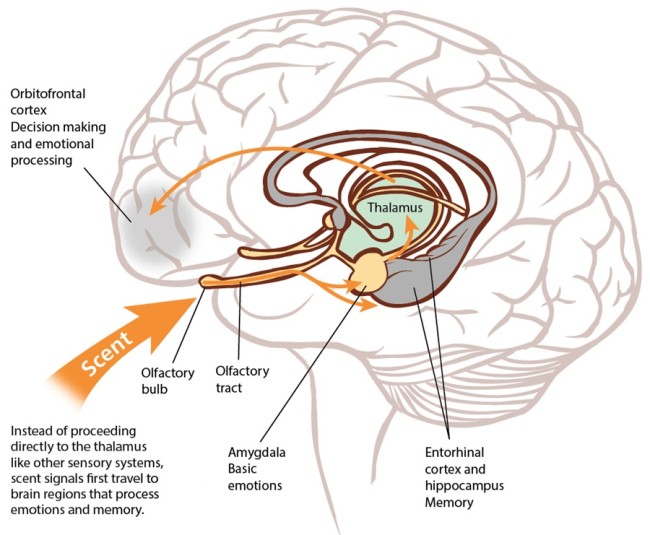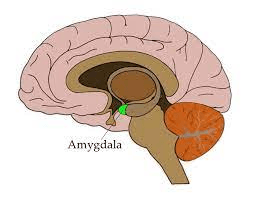An acquired brain injury
A) Occurs before birth
B) Only impacts senior citizens
C) Can impact anyone and include both traumatic and non-traumatic injuries
D) Only impacts our balance
C) Can impact anyone and include both traumatic and non-traumatic injuries
There are two types of acquired brain injury: traumatic and non-traumatic.
A traumatic brain injury (TBI) is caused by an external force, including falls, assaults, motor vehicle accidents, and sports injuries.
A non-traumatic brain injury causes damage to the brain by internal factors, such as a lack of oxygen, exposure to toxins, pressure from a tumor, stroke, or infectious disease.
Assertive communication does not include
A) Respecting yourself
B) Expressing your thoughts and feelings calmly
C) Demanding others share your beliefs
D) Saying "no" when you need to
C) Demanding others share your beliefs
Your needs, wants, and rights are as important as anyone else's. It's fine to express what you want, as long as you are respectful towards the rights and safety of others as well.
True or False: People who know their strengths and use them frequently tend to have higher self-esteem, better moods, and less stress.
True.
The key is to use your strengths intentionally and purposefully.
This is not a symptom of depression.
A) Difficulty sleeping
B) Increased motivation
C) Fatigue
D) Difficulty concentrating
B) Increased motivation
Your friend calls you at 11 p.m. to discuss issues she is having with her boyfriend. You need to wake up at 6 a.m. How do you respond employing healthy boundaries.
A) Say, "I hate you. Do not call me again."
B) Throw your phone across the room and scream.
C) Talk to her all night and miss your appointment the next morning.
D) Say, “I can tell you’re upset. I want to talk to you, but I need to go to bed. Maybe we can talk tomorrow afternoon.”
D) Say, “I can tell you’re upset. I want to talk to you, but I need to go to bed. Maybe we can talk tomorrow afternoon.”
High levels of this can affect the brain’s functional connectivity, cause it to atrophy or shrink, and restrict blood flow in the brain, causing cognitive difficulties.
A) Tobacco
B) Water
C) Sunlight
D) Sugar (blood glucose)
D) Sugar (blood glucose)
When a person prioritizes the needs, wants, and feelings of others, even at their own expense. This is an example of what type of communication.
A) Passive
B) Assertive
C) Aggressive
A) Passive
This is when someone does not express their own needs or stand up for them. This can lead to being taken advantage of.
True or false: Lack of natural sunlight can increase depression symptoms
True.
Lack of vitamin D can cause depression.
A mental and physical reaction to perceived threats.
A) Depression
B) Growing pains
C) Trauma
D) Anxiety
D) Anxiety
In small doses, anxiety is helpful as it protects us from danger and focuses our attention on problems. But when anxiety is severe or occurs frequently, it can become debilitating.
Providing details about your intimate life while in public is an example of having what type of boundaries?
A) Healthy
B) Loose
C) Rigid
B) Loose
This sense is most closely linked to our memory.
A) Sight
B) Sound
C) Smell
D) Touch
C) Smell
Smell and memory are closely linked because of the brain's anatomy. The olfactory signals very quickly get to the limbic system.

A willingness to compromise is an example of what communication style?
A) Passive
B) Aggressive
C) Assertive
C) Assertive
True or False: Physical health is more important than mental health.
False.
Treatment for clinical anxiety should not include
A) Therapy
B) Relaxation techniques
C) Medication taken as prescribed
D) Medication prescribed to someone else
D) Medication prescribed to someone else
This is a common trait of someone with healthy boundaries.
A) They value their own opinions.
B) They have difficulty saying "no" to others.
C) They avoid asking for help.
D) They accept abuse and disrespect from others.
A) They value their own opinions.
Alcohol intoxication causes
A) Increased control over movement
B) Dehydration
C) Super powers
D) Increased response time
B) Dehydration
Alcohol causes you to urinate more frequently, inhibits the release of certain hormones in your body, the build-up of toxic substances in the body, and increased vomiting... all leading to dehydration. And your brain is made up of 75% water!
Verbal abuse is an example of this type of communication.
A) Aggressive
B) Assertive
C) Passive
A) Aggressive
When someone bullies others, ignores others needs, is disrespectful and uses humiliation and possibly an overbearing tone.
True or False: Deep breathing is best done by breathing in through the mouth at a fast past.
False.
Mental health is dependent on
A) Genetics
B) Environment
C) Utilizing practical coping skills
D) All of the above
D) All of the above
Which of the following is an example of having healthy boundaries:
A) Eating off of a stranger's plate
B) Pushing another person
C) Accepting when others say "no" to them
D) Always refusing to compromise with others
C) Accepting when others say "no" to them
Involved with the experiencing of emotions, this part of the brain is responsible for our fight, flight, or freeze response.
A) Amygdala
B) Prefrontal Cortex
C) Occipital Lobe
D) No one really knows
A) Amygdala

An aggressive way people communicate non-verbally.
A) Physical violence
B) Smiling
C) Shaking hands
D) Sign language
A) Physical violence
True or False: Socratic questioning, or "putting your thoughts on trial," is a method to help cope with anxiety, depression, and stress.
True.
Examples of this method include:
Is my thought based on feeling or a fact?
How would my best friend see this situation?
How likely is it that my fear will come true?
This has been found to be the most effective treatment for depression.
A) Drinking coffee
B) Counseling
C) Medication
D) A combination of counseling and medication
D) A combination of counseling and medication
You notice your roommate has been eating your food in the fridge. You never discussed plans to share food, and don’t want them eating what you bought. The following is an example of responding with healthy boundaries:
A) Ignore it and let your roommate do what they want.
B) Say, “I’d like to keep our food separate. If there’s something of mine that you want, please ask me before taking it.”
C) Say, "Get the hell away from the refrigerator."
D) Throw out all of your roommates food when they leave the room.
B) Say, “I’d like to keep our food separate. If there’s something of mine that you want, please ask me before taking it.”